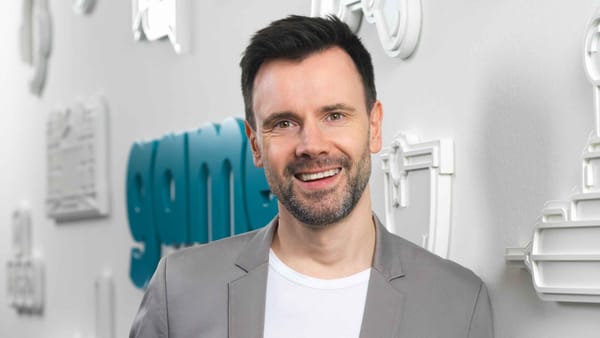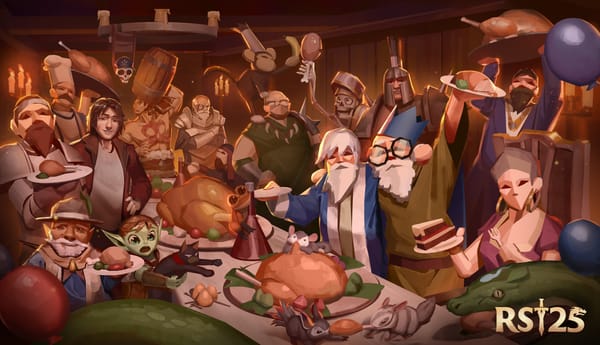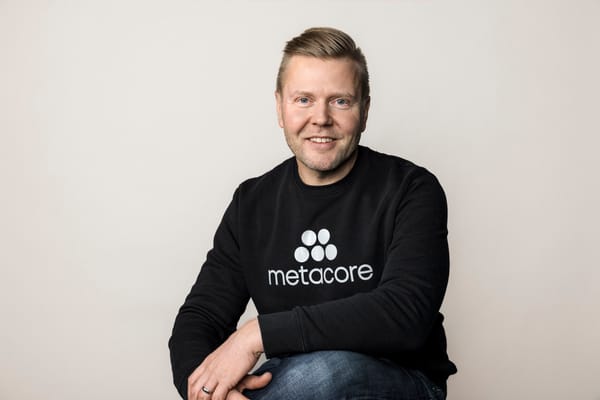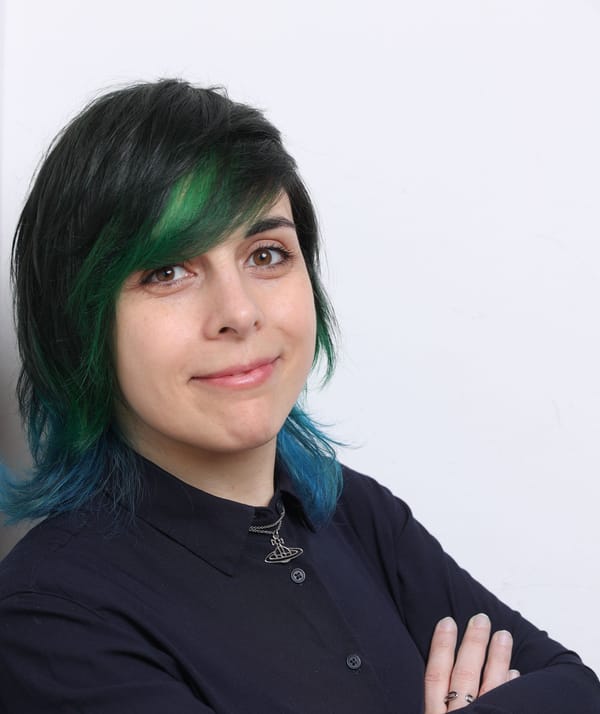MGVC: Growth During Fundamental Market Changes



My.games Venture Capital (MGVC) has adapted to the fundamental shifts in the mobile gaming landscape. In this interview, Nikita Matsokin explains why this allows games to be published without the need for studio investments.
GamesMarkt: Could you introduce yourself and explain your role at My.games Venture Capital (MGVC)?
Nikitia Matsokin: My name is Nikita Matsokin, and I am the Executive Director at MGVC, which stands for My.games Venture Capital. I have been in the gaming industry for over ten years, starting my career at Wargaming, where I held multiple roles, including operations management, business development, and external studio relations. With that angle I joined My.games over four years ago, leading our investments and publishing efforts within MGVC, the investment arm of My.games.
What is MGVC’s main mission and approach to working with independent studios?
MGVC was launched with the goal of supporting independent development studios in the mobile gaming sector. Our focus is on accelerating their growth through financial support, marketing expertise, and hands-on product improvement. Our strategy has always been to identify top-performing studios and integrate them into the My.games family through acquisitions.
Over the past six years, we have completed more than 50 investment deals, most of them at an early stage—ranging from concept ideas to prototypes and soft launches. From this pool, we identified the strongest performers and acquired eight studios, helping to significantly contribute to My.games' overall growth, particularly between 2019 and 2021.
Beyond investments, we have expanded our focus to product-centric partnerships, leading to the launch of MGVC Publishing, our publishing branch, in December 2024. We help studios refine their games, optimize monetization, and scale their user acquisition strategies. It’s a very hands-on collaboration, much more than just a financial backing.
How has the mobile gaming and investment landscape changed in recent years?
The mobile gaming landscape has undergone a major shift. Apple’s removal of IDFA has fundamentally changed user acquisition, while the market itself has matured. Growth is no longer as aggressive as it was in 2019–2020, leading to fiercer competition.
Big studios are raising the bar with higher production quality, larger marketing budgets, and advanced BI and analytics solutions to scale effectively. As a result, many smaller studios struggle to keep their games alive, lacking the resources and infrastructure needed to compete in this new reality.
In light of this, we’ve decided to expand our operations from strategic partnerships to product-focused publishing deals, joining the studios to grow their products, utilizing our strengths.What remains the same is our philosophy of transparent and mutually beneficial relationships with the studios we work with.
What differentiates MGVC from other gaming-focused VCs?
Unlike traditional gaming VCs that primarily provide funding and networking, MGVC takes a hands-on approach. We go beyond investment by actively helping studios refine their in-game economy and monetization, integrating our best-in-class tech and publishing infrastructure, and scaling their games with the support of our marketing teams and marketing financing solution.
This one-stop-shop approach—combining game development expertise, marketing strategies, and monetization support—has significantly enhanced the performance of our partner studios, driving real growth and long-term success.
For investments, the most critical factor is the team—their chemistry with us, vision, track record, and previous successes. If available, we also analyze product performance metrics, especially early retention figures.
In what areas does MGVC provide the most value to developers?
It depends on the studio's specific needs. Some studios have well-rounded teams with expertise in marketing, design, and business, while others may lack certain skill sets. We step in to fill those gaps, focusing on three major phases:
Game Production: We provide expert insights and data-driven advice from professionals with proven experience of building successful products at top-tier companies like My.Games,Wargaming, Vizor, Zeptolab and others. Our team helps refine product-market fit, core gameplay, in-game progression systems.
Soft Launch and Metrics Optimization: At this stage, we help fine-tune monetization strategies, improve the game's economy, and achieve healthy unit economy in the game - LTV (lifetime value) > CPI (customer acquisition costs).
Scaling and Global Launch: We invest heavily in marketing to accelerate growth, ensuring our partner studios' games can compete at the highest levels.
What criteria does MGVC use when deciding which studios to invest in?
For investments, the most critical factor is the team—their chemistry with us, vision, track record, and previous successes. If available, we also analyze product performance metrics, especially early retention figures. In many cases, we invest based on a strong team and a promising game concept.
For publishing partnerships, we focus more on the product itself. We look for games already generating revenue or showing potential through early marketing efforts. The goal is to find titles that can scale successfully with our expertise and financial backing.
How strong is My.games' presence in the Asian market?
Historically, at MGVC we have focused on European teams and markets due to factors like cost efficiency, great talent, and the same culture. Since 2020, we have expanded into the North American market, making early-stage investments, such as with a San Francisco-based studio Pizza Club Games.
However, we have been more hesitant about the Asian market. The landscape there is vastly different in terms of business practices, cultural preferences, and player expectations. While we see Asia as a lucrative opportunity for distributing our in-house and published titles, we are not currently prioritizing strategic investments in the region.
While we are cautious about investing in Asian development studios, we strongly believe in our ability to help Asian developers expand and thrive in Western markets. MGVC Publishing offers full-scale expertise, from publishing infrastructure to marketing and monetization, to support studios in successfully launching and scaling their games in the West.
Right now, most of the revenue in mobile gaming still comes from the Apple App Store and Google Play. But if more alternative stores pop up, the competition might force those dominant platforms to reduce their commission fees. That would be a big win for developers and publishers like us.
How is MGVC adapting to new regulations, such as DMA and DSA, and the rise of alternative app stores?
The mobile ecosystem is definitely opening up. Apple is facing challenges in the EU, Epic Games has launched its own store with Fortnite, and Google Play is seeing competition from regional alternatives like Korea’s One Store. Microsoft is also reportedly working on a new mobile game store.
Right now, most of the revenue in mobile gaming still comes from the Apple App Store and Google Play. But if more alternative stores pop up, the competition might force those dominant platforms to reduce their commission fees. That would be a big win for developers and publishers like us.
At the same time, managing distribution across multiple stores is not as simple as just uploading the game to another platform. Each store has its own requirements and processes. That’s why we use our expertise and our relationships with alternative stores like the Samsung Galaxy Store and Huawei’s AppGallery to help our partners navigate these new opportunities efficiently.
As the market matures, every percentage point of profitability counts. That’s why having expertise in distribution across alternative mobile stores and on web platforms l will become even more crucial in the near future.
Do you see direct-to-consumer models becoming more relevant?
Absolutely. Direct-to-consumer (DTC) sales are a key part of our publishing strategy. If a game is cross-platform (available on web, Google Play, and iOS), developers can offer in-game purchases directly to players, being compliant with store policies. This approach increases profitability and provides more control over the customer relationship.
Does MGVC think about working with larger studios?
Given current market trends—rising production costs, higher marketing budgets, and fierce competition—small to mid-sized studios face significant challenges. Our MGVC publishing team is built to provide them with the resources, infrastructure, and expertise they need to compete at a high level.
Larger studios usually have their own resources, making our value proposition less relevant for them. However, for independent studios, we act as a platform to elevate their games to top-chart positions.
One key aspect that makes us different is transparency. I was surprised to learn that even today, some publishers still don’t share marketing data with their development partners. That doesn’t make sense to me.
What are your expectations for the mobile gaming market in the next 12–24 months?
When we are thinking about the trends that are coming for the mobile games business there are many pillars that should be considered and could be structured in challenges and opportunities. Some of the challenges we have already captured. On the challenge side I would like to add that Google is about to roll out its Privacy Sandbox, which will make user acquisition harder because developers, who often rely on Google Play Store while soft launching their products due to full transparency, will have less access to data. Also, Asian developers—especially from China—are becoming more dominant in the top charts. If you look at the U.S. charts today, aside from some "behemoths" which are around for a decade, most of the new games in the top 20 grossing are from Chinese studios. They are highly cost-efficient, have large teams, therefore they are very fast with go to market. Also there is very great talent out there in mobile free to play.. That’s something Western developers need to be prepared for.
Another big challenge is regulation. We’re seeing more restrictions on loot boxes for example in markets like Belgium, the UK, Japan, and Korea. And Apple and Google are starting to allow more iGaming and Forex advertising, which could drive up advertising costs for traditional mobile games.
On the opportunity side, the mobile market is decentralizing. We’re seeing more cross-platform releases, meaning developers can bring their mobile titles to web, HTML5 and PC. GenAI is another big opportunity. Right now, GenAI is mainly used in things like art generation and localization, but I believe it won’t be long before we see a fully AI-developed game. That’s a huge opportunity to lower production costs and make development more efficient.
Additionally, the push toward alternative platforms and storefronts opens up possibilities for developers who want to operate more independently and capture more revenue directly. This is a very exciting shift.
What sets MGVC apart as a publishing partner?
First and foremost, we have a long history of building successful partnerships with independent studios. Many publishers treat developers like just another business deal, but we’ve always taken a more hands-on and collaborative approach.
One key aspect that makes us different is transparency. I was surprised to learn that even today, some publishers still don’t share marketing data with their development partners. That doesn’t make sense to me. We provide full access to marketing data, ROI predictions, and key performance metrics so that both sides can make the best possible decisions together.
Another important factor is IP ownership. Some publishers try to take full control of a game’s IP, which forces the developer to stay locked into the partnership. We don’t do that. Our philosophy is that developers should always own their IP. That way, they stay motivated and creative, and we build a long-term, trust-based relationship. Finally, we structure our publishing contracts to be fair. If a game underperforms and doesn’t meet agreed-upon goals, developers have the option to exit the partnership. We don’t want any studio to feel stuck with us. It has to be a win-win situation.
On top of that, we are part of My.games, which has extensive expertise in the mobile gaming sector. Our access to top-tier talent, marketing tools, and infrastructure means that we don’t just publish—we actively help developers optimize their games, from game design to monetization and beyond.
Do you have a limit on the number of games you publish at the same time?
We don’t aim to sign dozens of titles at once. Our approach is more boutique—we focus on fewer games but ensure they have the best possible chance of success. Every title we sign receives dedicated resources and attention. So, while we will add more games to our portfolio, we’re prioritizing quality over quantity.
It’s not just about numbers—it’s about making sure that every game we publish gets the full benefit of our expertise and support. That’s how we create real success stories.

...is Executive Director at My.games Venture Capital, short MGVC. He started his career at Wargaming more than ten years ago, where he held multiple roles, and moved on to MGVC over four years ago.
Never miss anything from the German, Swiss and Austrian games industry again: subscribe for free to our Daily newsletter and get all news straight to your inbox.








